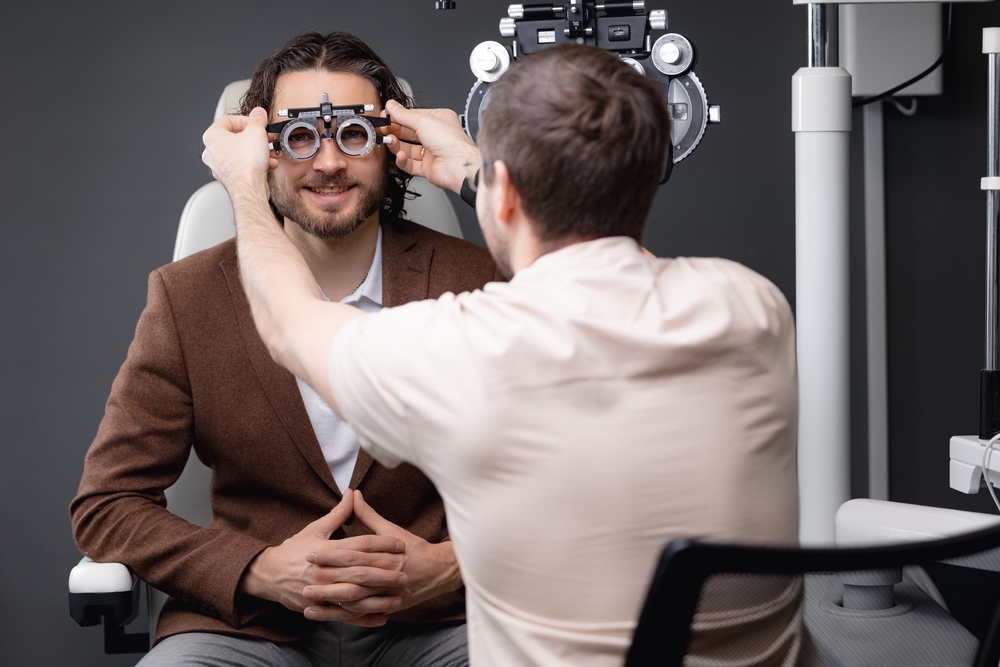
As a parent, ensuring your child's vision health is a top priority. Regular eye examinations play a crucial role in maintaining optimal visual development and detecting any potential issues early on. A thorough eye examination is a comprehensive assessment that goes beyond a simple vision screening, providing a detailed evaluation of your child's overall eye health and visual function.
Why Regular Eye Exams are Important for Children
Vision plays a vital role in a child's overall development and learning. Undetected vision problems can lead to difficulties in school, behavioral issues, and even developmental delays. Regular eye examinations are essential to ensure your child's eyes are developing properly and functioning at their best.
These comprehensive exams can identify a wide range of vision issues, including nearsightedness, farsightedness, astigmatism, and eye coordination problems. Early detection and treatment of these conditions can help prevent long-term complications and ensure your child has the best possible vision for their academic and social success.
What is a Pediatric Eye Exam?
A pediatric eye exam is a comprehensive assessment of a child's visual system, conducted by an optometrist. This examination goes beyond a simple vision screening, which may only test for basic visual acuity. A thorough pediatric eye exam evaluates the overall health of the eyes, as well as the child's visual skills and development.
During the exam, the optometrist will use a variety of techniques and instruments to assess various aspects of your child's vision. The optometrist will also take the time to discuss any concerns or questions you may have about your child's vision and overall eye health.
What to Expect During a Thorough Eye Examination for Children
A comprehensive pediatric eye exam can be a new and potentially intimidating experience for children. However, your optometrist will work to make the process as comfortable and engaging as possible. Here's what you can expect during your child's thorough eye examination:
• History and Questionnaire: The exam will begin with a discussion about your child's medical history, any vision-related concerns, and any family history of eye conditions.
• Visual Acuity Testing: The eye care professional will assess your child's distance and near visual acuity using age-appropriate charts and techniques, such as the Snellen eye chart or picture charts for younger children.
• Refractive Error Evaluation: The optometrist will use various instruments, such as a phoropter or autorefractor, to measure your child's refractive errors, including nearsightedness, farsightedness, and astigmatism.
• Eye Coordination and Binocular Vision: The exam will include tests to evaluate how your child's eyes work together, such as cover tests and assessments of eye tracking and eye teaming.
• Eye Health Examination: The optometrist will use specialized instruments, such as a slit lamp and ophthalmoscope, to examine the internal and external structures of your child's eyes for any signs of disease or abnormalities.
• Color Vision Screening: The eye care professional may conduct tests to assess your child's ability to perceive colors accurately.
• Dilation: In some cases, your doctor may need to dilate your child's pupils to get a better view of the internal structures of the eyes. This process can take some time, but it's essential for a thorough examination.
Throughout the exam, your optometrist will explain the various tests and procedures to your child, making the experience as comfortable and engaging as possible. They may also provide age-appropriate activities or distractions to help your child remain calm and cooperative during the examination.
What Can a Thorough Eye Examination Detect?
A thorough pediatric eye examination can detect a wide range of visual and ocular health issues that are crucial for a child’s development. Beyond assessing basic vision clarity, it can identify conditions such as amblyopia (lazy eye), strabismus (misalignment of the eyes), and refractive errors like nearsightedness, farsightedness, or astigmatism. Additionally, a comprehensive exam can uncover more serious concerns, including eye coordination problems, and depth perception issues.
By identifying these issues early on, the optometrist can recommend appropriate treatment options, such as prescription glasses, contact lenses, or referrals to other specialists if necessary.
How Often Should Children Have an Eye Exam?
The American Optometric Association recommends that children have their first comprehensive eye exam at 6 months of age, followed by additional exams at the following ages:
· 3 years old
· Before starting kindergarten (around 5-6 years old)
· Annually thereafter
These recommendations may vary depending on your child's individual needs and any existing vision or eye health concerns. Your eye doctor can provide personalized guidance on the frequency of eye exams for your child.
Book Your Child’s Eye Exam with My Vision Today
Maintaining your child's vision health through regular, comprehensive eye examinations is a crucial aspect of their overall well-being. These thorough assessments can detect a wide range of vision and eye health issues, allowing for timely intervention and treatment. By prioritizing your child's eye care, you can help ensure they have the visual skills and support they need to thrive academically, socially, and developmentally.
To schedule a comprehensive eye examination for your child and take the first step towards protecting their vision health, contact My Vision. Dr. Rammohan is dedicated to providing personalized care and ensuring your child's eyes are developing properly. Visit our office in Bethlehem, Pennsylvania. Call (610) 424-2020 to book an appointment today.








